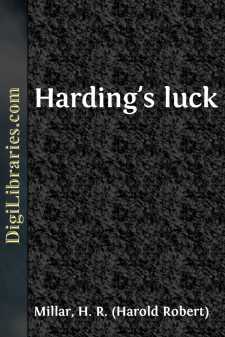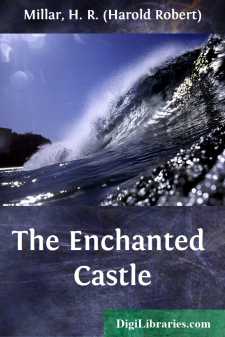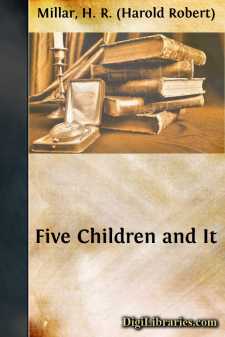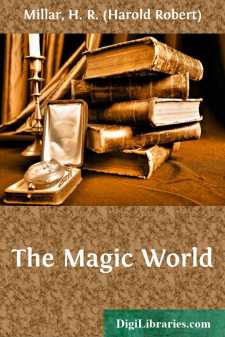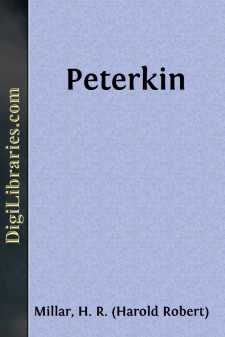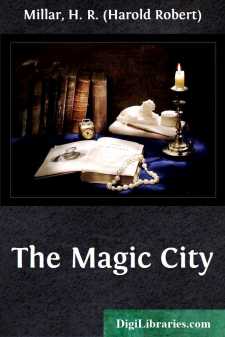Categories
- Antiques & Collectibles 13
- Architecture 36
- Art 48
- Bibles 22
- Biography & Autobiography 813
- Body, Mind & Spirit 142
- Business & Economics 28
- Children's Books 17
- Children's Fiction 14
- Computers 4
- Cooking 94
- Crafts & Hobbies 4
- Drama 346
- Education 46
- Family & Relationships 57
- Fiction 11829
- Games 19
- Gardening 17
- Health & Fitness 34
- History 1377
- House & Home 1
- Humor 147
- Juvenile Fiction 1873
- Juvenile Nonfiction 202
- Language Arts & Disciplines 88
- Law 16
- Literary Collections 686
- Literary Criticism 179
- Mathematics 13
- Medical 41
- Music 40
- Nature 179
- Non-Classifiable 1768
- Performing Arts 7
- Periodicals 1453
- Philosophy 64
- Photography 2
- Poetry 896
- Political Science 203
- Psychology 42
- Reference 154
- Religion 513
- Science 126
- Self-Help 84
- Social Science 81
- Sports & Recreation 34
- Study Aids 3
- Technology & Engineering 59
- Transportation 23
- Travel 463
- True Crime 29
Harding's luck
Description:
Excerpt
CHAPTER I
TINKLER AND THE MOONFLOWER
Dickie lived at New Cross. At least the address was New Cross, but really the house where he lived was one of a row of horrid little houses built on the slope where once green fields ran down the hill to the river, and the old houses of the Deptford merchants stood stately in their pleasant gardens and fruitful orchards. All those good fields and happy gardens are built over now. It is as though some wicked giant had taken a big brush full of yellow ochre paint, and another full of mud color, and had painted out the green in streaks of dull yellow and filthy brown; and the brown is the roads and the yellow is the houses. Miles and miles and miles of them, and not a green thing to be seen except the cabbages in the greengrocers' shops, and here and there some poor trails of creeping-jenny drooping from a dirty window-sill. There is a little yard at the back of each house; this is called "the garden," and some of these show green—but they only show it to the houses' back windows. You cannot see it from the street. These gardens are green, because green is the color that most pleases and soothes men's eyes; and however you may shut people up between bars of yellow and mud color, and however hard you may make them work, and however little wage you may pay them for working, there will always be found among those people some men who are willing to work a little longer, and for no wages at all, so that they may have green things growing near them.
But there were no green things growing in the garden at the back of the house where Dickie lived with his aunt. There were stones and bones, and bits of brick, and dirty old dish-cloths matted together with grease and mud, worn-out broom-heads and broken shovels, a bottomless pail, and the mouldy remains of a hutch where once rabbits had lived. But that was a very long time ago, and Dickie had never seen the rabbits. A boy had brought a brown rabbit to school once, buttoned up inside his jacket, and he had let Dickie hold it in his hands for several minutes before the teacher detected its presence and shut it up in a locker till school should be over. So Dickie knew what rabbits were like. And he was fond of the hutch for the sake of what had once lived there.
And when his aunt sold the poor remains of the hutch to a man with a barrow who was ready to buy anything, and who took also the pails and the shovels, giving threepence for the lot, Dickie was almost as unhappy as though the hutch had really held a furry friend. And he hated the man who took the hutch away, all the more because there were empty rabbit-skins hanging sadly from the back of the barrow.
It is really with the going of that rabbit-hutch that this story begins. Because it was then that Dickie, having called his aunt a Beast, and hit at her with his little dirty fist, was well slapped and put out into the bereaved yard to "come to himself," as his aunt said. He threw himself down on the ground and cried and wriggled with misery and pain, and wished—ah, many things....


